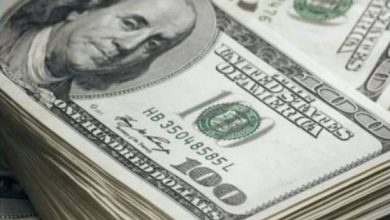PM defers decision to export sugar on contradictory claims

ISLAMABAD:Prime Minister Shehbaz Sharif has deferred a decision on allowing the export of sugar due to contradictory claims of surplus stocks, which according to the government reported only 114,000 metric tonnes compared to the sugar industry’s estimates of 1.5 million tonnes.
The Pakistan Sugar Mills Association (PSMA)’s claim about surplus sugar stocks was over 1200% higher than the estimates of the Ministry of National Food Security and Research. The difference in the numbers is due to variation in monthly consumption and the government’s insistence on keeping strategic reserves.
PM Sharif chaired a meeting last week to review the possibility of sugar export, according to officials who attended the meeting. However, it emerged during the meeting that there were no consensus numbers available regarding surplus stock, they added.
The premier asked government officials to reconcile their figures before he chairs another meeting on the subject.
The export of sugar has always remained a contentious and politically sensitive topic in Pakistan due to its high demand and the involvement of many political families in the sugar production business. Sugar export is regulated by the federal government, similar to wheat. There have been incidents in the past where wheat and sugar were exported and then imported, causing an increase in local prices.
However, the sugar industry claims that it cannot settle the outstanding liabilities of sugarcane farmers without earnings from exports.
The Pakistan Democratic Movement (PDM) government also allowed the export of 250,000 metric tonnes of sugar in January last year. However, at that time, the government avoided a debate in the federal cabinet on the politically sensitive question of allowing sugar export and instead circulated a summary to get endorsements from ministers.
Concerns persist about actual sugar stocks and the claims made by PSMA. In the past, the Competition Commission of Pakistan (CCP) accused the association of manipulating sugar prices.
The PM was briefed on available sugar stocks and consumption patterns. Officials stated that there was no dispute about the availability of total stocks, estimated at 7.575 million tonnes, including surpluses from the previous crushing season.
Disagreement arose over consumption, with the sugar industry estimating 500,000 metric tonnes a month but according to the government, consumption was 568,333 metric tonnes, translating into a difference of about 862,000 metric tonnes.
Sources indicate that after adjusting for strategic needs, available stocks were not more than 114,000 metric tonnes. However, the PSMA disagrees with these estimates and insists that its surplus stocks were accurate.
At least two meetings of the Sugar Advisory Board have also been held, but no consensus could be reached among stakeholders. The food ministry finalised these figures in consultation with the Federal Board of Revenue and cane commissioners, according to a ministry official.
The PSMA believes that the food ministry was also factoring in the impact of smuggling into its strategic reserves and consumption requirements, which is tantamount to legalising the menace. Industry representatives argue that with the increased focus of the Special Investment Facilitation Council (SIFC), there should be zero chances of smuggling goods.
However, Pakistani authorities have been struggling to completely disrupt smuggling due to porous borders and specific requirements and employment opportunities in the province of Balochistan.
Sugar is being sold in the market in the range of Rs140 to Rs158 per kilogram, according to Pakistan Bureau of Statistics (PBS). The industry claims its production cost was Rs175 per kilogram, as it bought sugarcane in the range of Rs450 to Rs500 per 40 kg, higher than the maximum support price of Rs425.
Farmers in Punjab are already suffering due to the provincial government’s decision to limit wheat procurement to less than two million metric tonnes, compared to last year’s target of 4.5 million tonnes. This has left farmers at the mercy of market players seeking to exploit the poor farming community. Despite a minimum support price of Rs3,900 per 40kg, farmers are selling their commodity at Rs3,000 to Rs3,400 per 40kg.
PBS data showed that Pakistan imported 3.5 million metric tonnes of wheat costing $1.1 billion, despite high hopes for a bumper crop. Wheat imports saw a 36% increase, underscoring the need to hold the caretaker government responsible for allowing wheat import by the private sector despite bumper crops. In March alone, 691,000 metric tonnes of wheat worth $205 million arrived in Pakistan, according to PBS.
Published in The Express Tribune, April 30th, 2024.
Like Business on Facebook, follow @TribuneBiz on Twitter to stay informed and join in the conversation.




